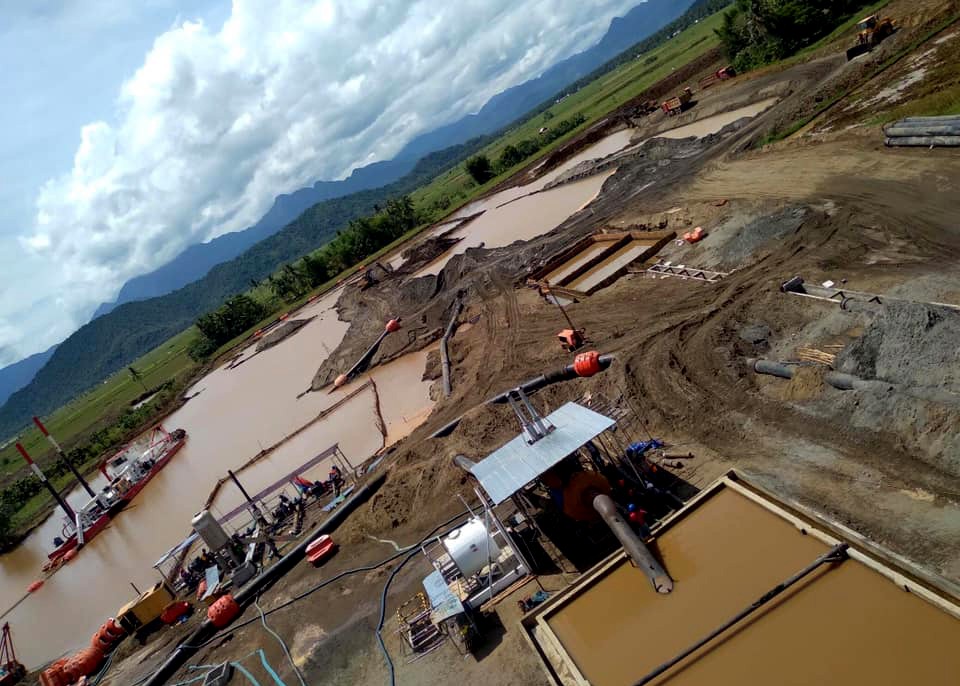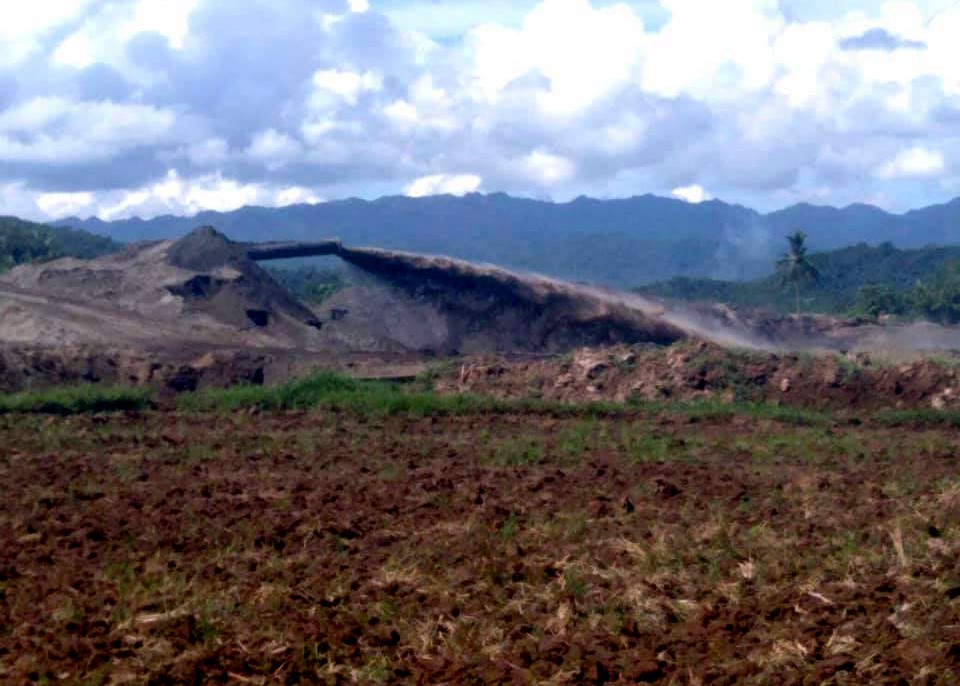
Catholic priest Amadeo Alvero has taken to social media to appeal for an end to black sand mining operations in the small town of MacArthur in the central Philippine province of Leyte.
“I am pleading with my bended knees,” said the priest in a November 19 post. “This appeal I made in behalf of those who love and want to protect our environment,” he said.
In his “open letter,” Father Alvero, parish priest of St. Isidore the Worker parish in town, called the attention of the government to the “destruction of the environment.”
He said the recent devastations in the northern part of the country brought by a series of typhoons were aggravated by “environmental-related destructions.”
“If we protect the environment from destructions, the environment will protect us from destructions,” he said in his post on Facebook that already gathered a huge following.
“A brave one to express a concern for everyone’s welfare,” read one comment on the priest’s post. “No one will dare to expose this kind of activity for fear,” added another.
Father Alvero said the “battle” against the black sand mining operations will not be successful without the help of government leaders.
“So I am humbly appealing to the deepest of their hearts to help us stop this black sand mining (in MacArthur) for the sake of those who will suffer and die in the future if we do not protect our environment,” said the priest.
The town of MacArthur, named after American general Douglas MacArthur who liberated the Philippines during the Second World War, is a fifth-class municipality in the province of Leyte.
The small town, with a population of over 21,000 in the 2015 census, gained national attention when a fish kill struck its lake in 2012, decimating the livelihood of villagers.
In November 2013, the town was devastated by super typhoon “Yolanda (Haiyan)” that left over 6,000 people dead in the provinces of Leyte and Samar.
Father Alvero said he is not against mining, only “irresponsible mining.”
He said he is opposing the black sand mining operation in MacArthur because previously mined areas in other parts of the province were not rehabilitated.

Mining operations to help economy
The Mines and Geosciences Bureau in Eastern Visayas region has earlier announced that mining company MacArthur Iron Projects Corporation (MIPC) has inaugurated a “dredger and magnetic separator plant” in the village of Maya in MacArthur town.
The new processing plant has 4,000 tons of iron sand for “debugging” and is expected to process up to ten percent of its feed with a cut-off grade of 50, said the bureau.
The bureau said the project aims “to help the economy” that is “adversely affected” by the coronavirus pandemic, adding that “the mining industry cares for the environment” and that it “always delivers especially in its commitment to help” the people.
On November 20, MIPC issued a statement to deny the issues raised by Father Alvero in his Facebook post, calling the priest’s posts as “baseless.”
The company said it has “secured all necessary permits, licenses and approvals necessary to bring (its) business operation to its current stage.”
It added that “there is no commercial production yet” in the mining area, saying that equipment necessary for production has just been assembled and are undergoing commissioning and debugging, “which makes shipment impossible as wrongly implied in social media.”
MIPC, which already hired about 300 workers in the town MacArthur, assured the public that it has “performed our business operations within the bounds of law.”
“We will, especially, make good of our commitment to restore or bring the utilized lands to its stable and productive state before turning them over to landowners,” read the company’s statement.
Mining in Leyte
The Mines and Geosciences Bureau reported that from 2014 to 2016, mining in Leyte “has significantly contributed to the province’s economic landscape in the form of fees and taxes” amounting to about US$664,000.
Leyte, which is composed of 40 towns, is the largest province in the Eastern Visayas region and has a total land area of 578,382 hectares.
The total area covered by approved mining rights is 4.2 percent, or 24,502.11 hectares of the total land area of Leyte, and 32.38 percent, or 7,935.12 hectares covered by operating mines out of the 24,502.11 hectares.
Leyte, known as the site of the largest geothermal plant in Asia, is one of the “resource-rich” provinces of the country with its excess energy supplied to the national grid.
In July, the Philippine government issued a statement saying that mining could be used to generate additional revenue for the government’s fight against the coronavirus pandemic.
The anti-mining group Alyansa Tigil Mina, however, said the “minuscule economic contribution” of mining to the economy “poses a bigger threat” to communities and the environment.
The group urged the government “to find better, greener and more sustainable solutions to contribute in stimulating the economy under a new normal.”
Source: Licas Philippines
0 Comments